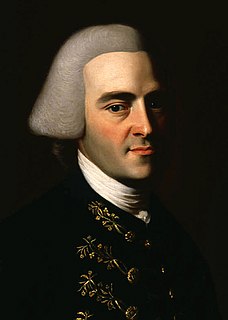A Quote by James Monroe
Republics demanded virtue. Monarchies could rely on coercion and "dazzling splendor" to suppress self-interest or factions; republics relied on the goodness of the people to put aside private interest for public good. The imperatives of virtue attached all sorts of desiderata to the republican citizen: simplicity, frugality, sobriety, simple manners, Christian benevolence, duty to the polity. Republics called on other virtues--spiritedness, courage--to protect the polity from external threats. Tyrants kept standing armies; republics relied on free yeomen, defending their own land.
Quote Topics
Armies
Aside
Attached
Benevolence
Christian
Citizen
Coercion
Could
Courage
Dazzling
Defending
Demanded
Duty
External
Factions
Free
Frugality
Good
Goodness
Imperatives
Interest
Kept
Land
Manners
Other
Own
People
Polity
Private
Protect
Public
Public Good
Put
Rely
Republican
Self
Self-Interest
Simple
Simple Man
Simplicity
Sobriety
Splendor
Standing
Suppress
Threats
Tyrants
Virtue
Virtues
Related Quotes
Public virtue cannot exist in a nation without private, and public virtue is the only foundation of republics. There must be a positive passion for the public good, the public interest, honour, power and glory, established in the minds of the people, or there can be no republican government, nor any real liberty: and this public passion must be superiour to all private passions.
A state too expensive in itself, or by virtue of its dependencies, ultimately falls into decay; its free government is transformed into a tyranny; it disregards the principles which it should preserve, and finally degenerates into despotism. The distinguishing characteristic of small republics is stability: the character of large republics is mutability.
There are still to be found visionary or designing men, who stand ready to advocate the paradox of perpetual peace between the states, though dismembered and alienated from each other.... The genius of republics, say they, is pacific; the spirit of commerce has a tendency to soften the manners of men, and to extinguish those inflammable humours which have so often kindled into wars. Commercial republics, like ours, will never be disposed to waste themselves in ruinous contentions with each other. They will be governed by mutual interest, and will cultivate a spirit of mutual amity and concord.
Sensible of the importance of Christian piety and virtue to the order and happiness of a state, I cannot but earnestly commend to you every measure for their support and encouragement ... Manners, by which not only the freedom, but the very existence of the republics, are greatly affected, depend much upon the public institutions of religion and the good education of youth; in both these instances our fathers laid wise foundations, for which their posterity have had reason to bless their memory.
World dictatorship can be established only when the victory of socialism has been achieved in certain countries or groups of countries ... [and] when these federation of republics have finally grown into a world union of Soviet Socialist Republics uniting the whole of mankind under the hegemony of the international proletariat organized as a state.
The history of ancient and modern republics had taught them that many of the evils which those republics suffered arose from the want of a certain balance, and that mutual control indispensable to a wise administration. They were convinced that popular assemblies are frequently misguided by ignorance, by sudden impulses, and the intrigues of ambitious men; and that some firm barrier against these operations was necessary. They, therefore, instituted your Senate.
Freedom of speech is a principal pillar of a free government; when this support is taken away, the constitution of a free society is dissolved, and tyranny is erected on its ruins. Republics and limited monarchies derive their strength and vigor from a popular examination into the action of the magistrates.






























